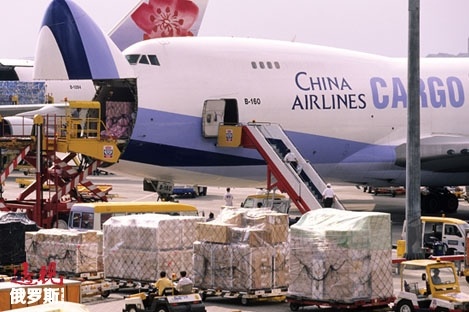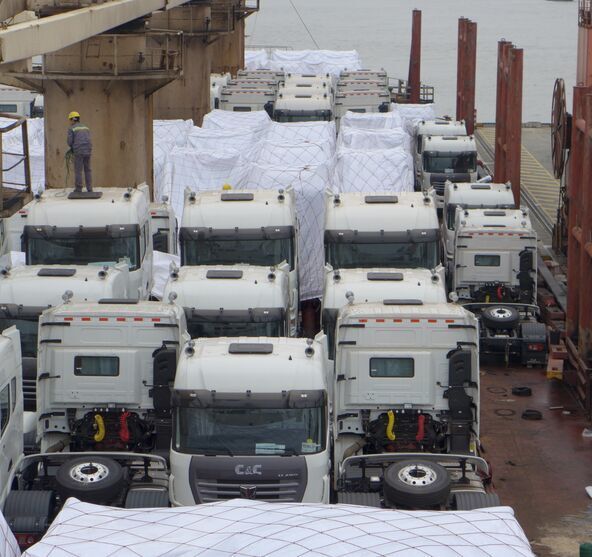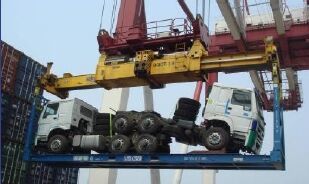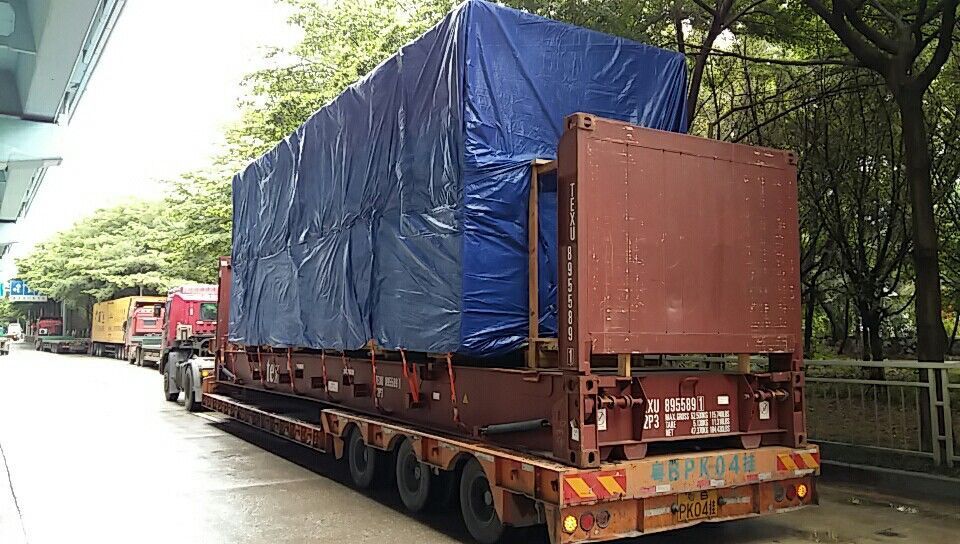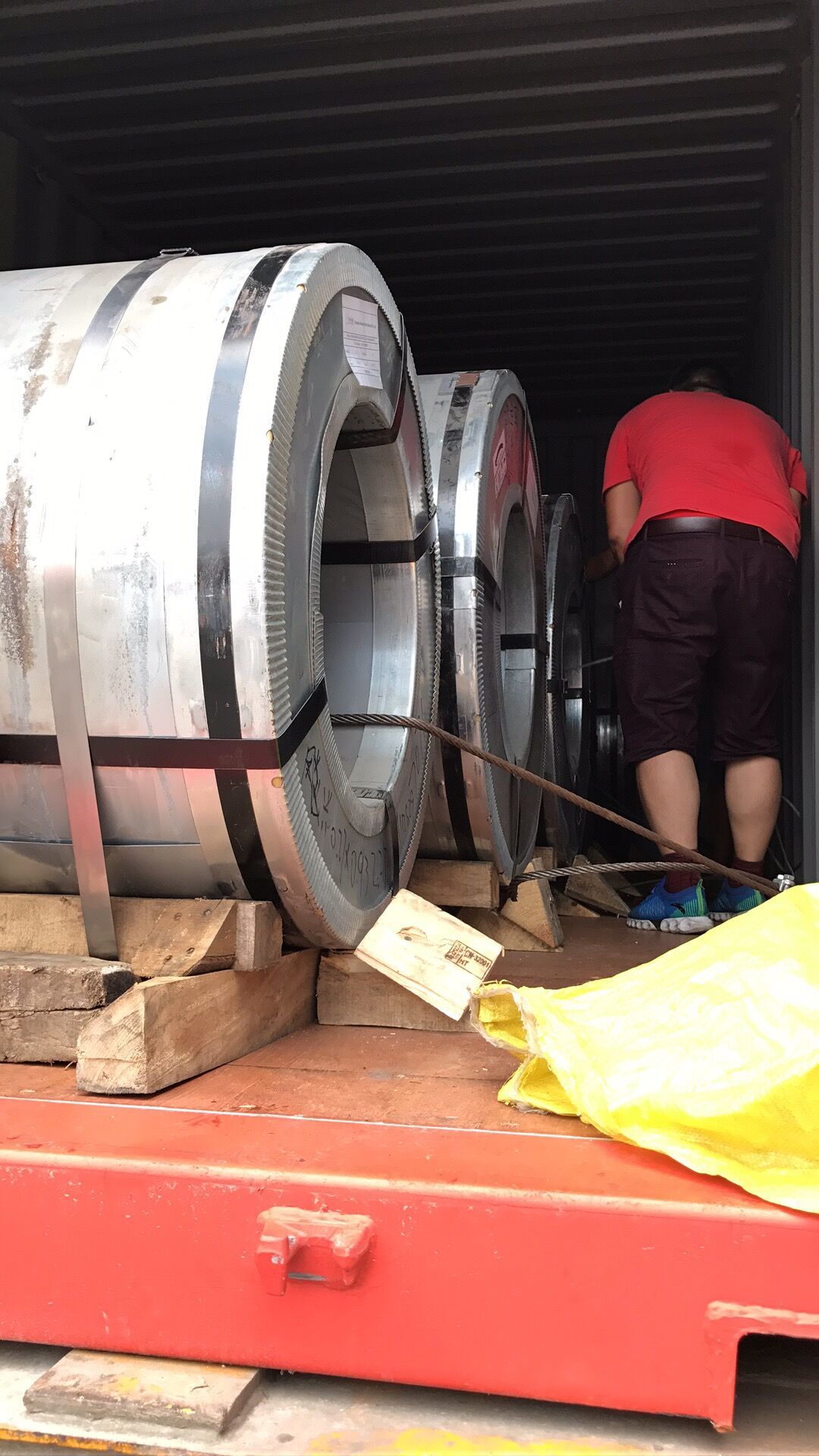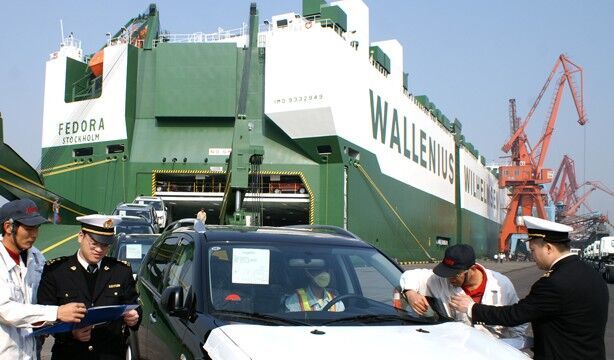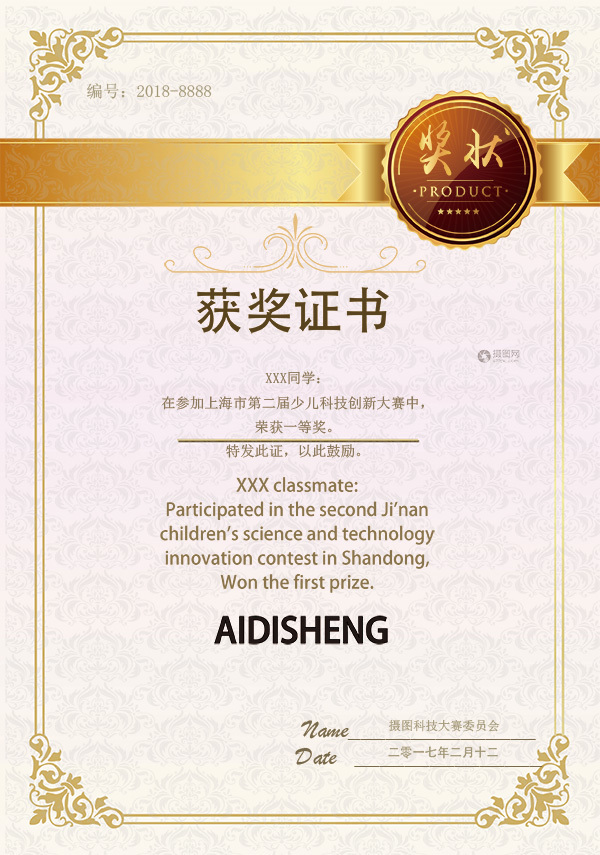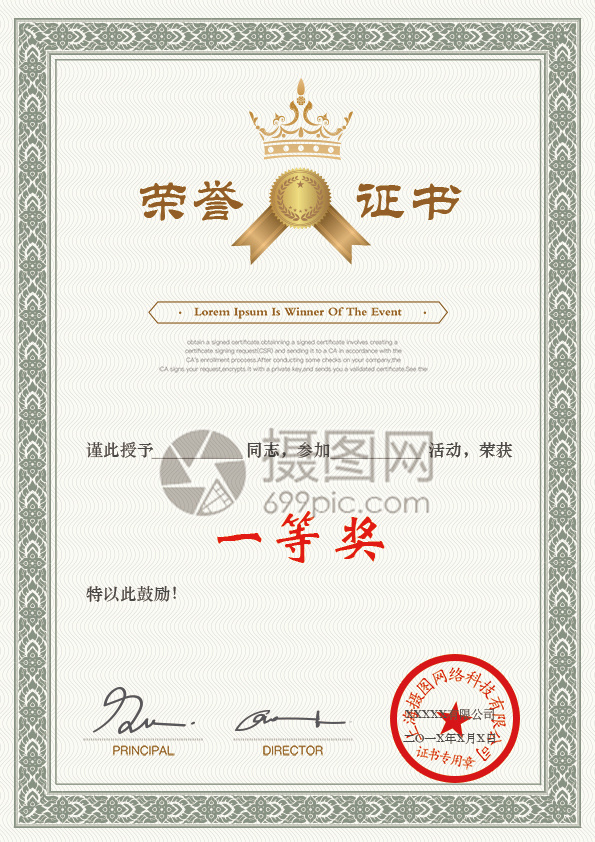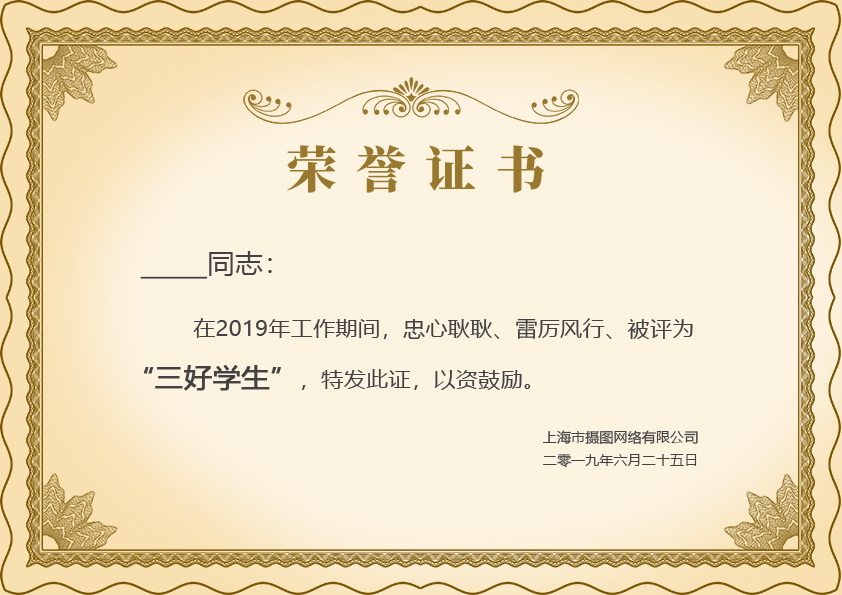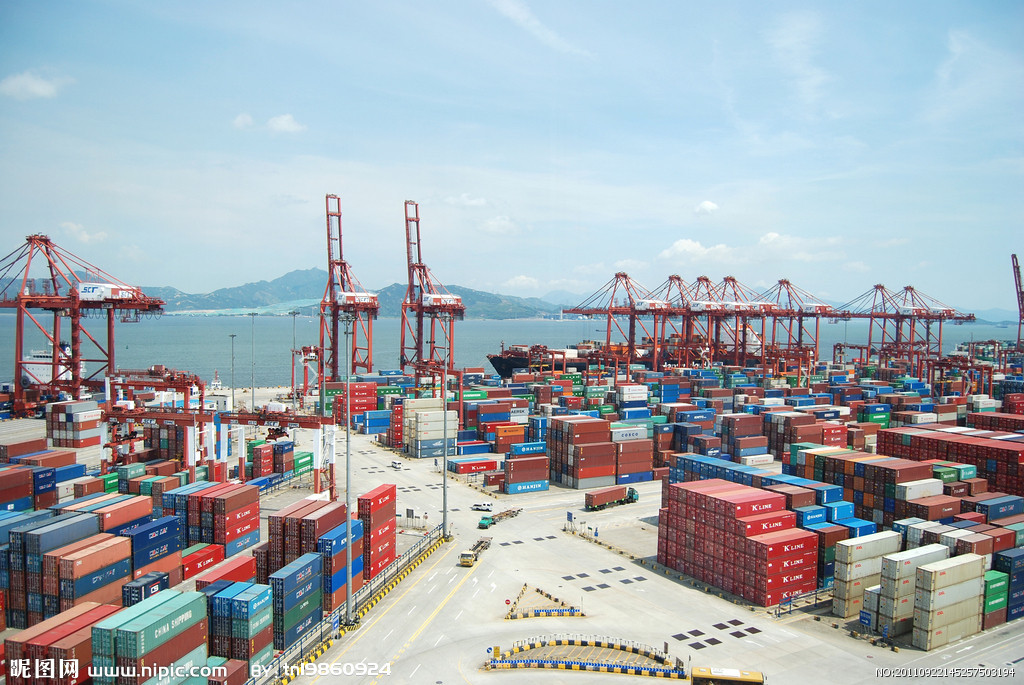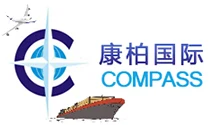Import and Export Tariff Regulations of the People's Republic of China (Effective January 1, 2004)
Category:
Keywords:
- Product Description
-
Notice: Regulations on Import and Export Tariffs of the People's Republic of China
Article 66 of these Regulations has been amended by (State Council Order No. 588).
Chapter 1 General Provisions
Article 1 For the purpose of implementing the policy of opening to the outside world, promoting foreign economic trade and the development of the national economy, and in accordance with the relevant provisions of the Customs Law of the People's Republic of China (hereinafter referred to as the Customs Law), these Regulations are formulated.
Article 2 Goods and articles permitted to be imported and exported by the People's Republic of China shall be subject to import and export tariffs levied by the customs in accordance with the provisions of these Regulations, unless otherwise provided by laws and administrative regulations.
Article 3 The State Council shall formulate the Import and Export Tariff of the People's Republic of China (hereinafter referred to as the Tariff) and the Import Tax Rate Table for Imported Articles of the People's Republic of China (hereinafter referred to as the Import Tax Rate Table for Imported Articles), specifying the tariff items, tariff headings and tax rates, which shall be part of these Regulations.
Article 4 The State Council shall establish a Customs Tariff Commission, which shall be responsible for adjusting and interpreting the tariff items, tariff headings and tax rates of the Tariff and the Import Tax Rate Table for Imported Articles, and shall implement them after approval by the State Council; decide on the goods, tax rates and time limit for the implementation of provisional tax rates; decide on tariff quota tax rates; decide on the levying of anti-dumping duties, countervailing duties, safeguard measures duties, retaliatory duties, and decide on the implementation of other tariff measures; decide on the application of tax rates under special circumstances, and perform other duties as prescribed by the State Council.
Article 5 The consignee of imported goods, the consignor of exported goods, and the owner of imported articles shall be the taxpayers of customs duties.
Article 6 Customs and its staff shall perform their customs duty collection duties in accordance with statutory powers and procedures, uphold national interests, protect the legitimate rights and interests of taxpayers, and accept supervision according to law.
Article 7 Taxpayers have the right to request the customs to keep their trade secrets confidential, and the customs shall keep them confidential according to law.
Article 8 The customs shall, in accordance with the regulations, reward units and individuals who report or assist in the investigation and apprehension of violations of these Regulations, and shall be responsible for confidentiality.
Chapter 2 Setting and Application of Import and Export Tariff Rates
Article 9 Import tariffs shall be set at the most-favored-nation tariff rate, the preferential tariff rate, the special preferential tariff rate, the ordinary tariff rate, and the tariff quota tariff rate. Provisional tax rates may be applied to imported goods for a certain period of time.
Export tariffs shall be set at the export tariff rate. Provisional tax rates may be applied to exported goods for a certain period of time.
Article 10 Imported goods originating from members of the World Trade Organization that jointly apply the most-favored-nation treatment clause, imported goods originating from countries or regions with which the People's Republic of China has signed bilateral trade agreements containing clauses on mutual granting of most-favored-nation treatment, and imported goods originating within the territory of the People's Republic of China shall be subject to the most-favored-nation tariff rate.
Imported goods originating from countries or regions with which the People's Republic of China has signed regional trade agreements containing tariff preferential clauses shall be subject to the preferential tariff rate.
Imported goods originating from countries or regions with which the People's Republic of China has signed trade agreements containing special tariff preferential clauses shall be subject to the special preferential tariff rate.
Imported goods originating from countries or regions other than those listed in paragraphs 1, 2 and 3 of this Article, and imported goods of unknown origin, shall be subject to the ordinary tariff rate.
Article 11 If imported goods subject to the most-favored-nation tariff rate have a provisional tax rate, the provisional tax rate shall be applied; if imported goods subject to the preferential tariff rate or the special preferential tariff rate have a provisional tax rate, the lower tax rate shall be applied; if imported goods subject to the ordinary tariff rate, the provisional tax rate shall not be applied.
If exported goods subject to the export tariff rate have a provisional tax rate, the provisional tax rate shall be applied.
Article 12 For imported goods subject to tariff quota management in accordance with national regulations, those within the tariff quota shall be subject to the tariff quota tax rate; those outside the tariff quota shall have their tax rates applied in accordance with the provisions of Articles 10 and 11 of these Regulations.
Article 13 If anti-dumping, countervailing, or safeguard measures are taken against imported goods in accordance with the relevant laws and administrative regulations, the application of their tax rates shall be implemented in accordance with the relevant provisions of the Anti-Dumping Regulations of the People's Republic of China, the Countervailing Regulations of the People's Republic of China, and the Safeguard Measures Regulations of the People's Republic of China.
Article 14 If any country or region violates trade agreements and related agreements signed or jointly participated in by the People's Republic of China, and takes measures to prohibit, restrict, increase tariffs or other measures affecting normal trade against the People's Republic of China in terms of trade, retaliatory tariffs may be levied on imported goods originating from that country or region, and the retaliatory tariff rate shall be applied.
The goods subject to retaliatory tariffs, the applicable countries, tax rates, time limits and collection methods shall be decided and announced by the Customs Tariff Commission of the State Council.
Article 15 Import and export goods shall be subject to the tax rate in effect on the date on which the customs accepts the declaration for import or export of the goods.
For imported goods that have been pre-declared by the customs before arrival, the tax rate in effect on the date on which the means of transport carrying the goods declares its entry shall be applied.
The applicable date of the tax rate for goods in transit shall be separately stipulated by the General Administration of Customs.
Article 16 In any of the following circumstances, where taxes are payable, the tax rate in effect on the date on which the customs accepts the declaration for tax payment procedures shall be applied:
(1) Bonded goods that are not re-exported after approval;
(2) Duty-free goods that are transferred or used for other purposes after approval;
(3) Goods temporarily imported that are not re-exported after approval, and goods temporarily exported that are not re-imported after approval;
(4) Leased imported goods for which taxes are paid in installments.
Article 17 The supplementary levy and refund of import and export tariffs shall be determined in accordance with the provisions of Article 15 or 16 of these Regulations.
If taxes need to be levied due to the taxpayer's violation of regulations, the tax rate in effect on the date on which the act occurred shall be applied; if the date on which the act occurred cannot be determined, the tax rate in effect on the date on which the customs discovered the act shall be applied.
Chapter 3 Determination of the Dutiable Value of Import and Export Goods
Article 18 The dutiable value of imported goods shall be examined and determined by the customs on the basis of the transaction price meeting the conditions listed in paragraph 3 of this Article, as well as the transportation and related expenses and insurance premiums before the goods are unloaded at the place of entry into the People's Republic of China.
进口货物的成交价格,是指卖方向中华人民共和国境内销售该货物时买方为进口该货物向卖方实付、应付的,并按照本条例第十九条、第二十条规定调整后的价款总额,包括直接支付的价款和间接支付的价款。
进口货物的成交价格应当符合下列条件:
(一)对买方处置或者使用该货物不予限制,但法律、行政法规规定实施的限制、对货物转售地域的限制和对货物价格无实质性影响的限制除外;
(二)该货物的成交价格没有因搭售或者其他因素的影响而无法确定;
(三)卖方不得从买方直接或者间接获得因该货物进口后转售、处置或者使用而产生的任何收益,或者虽有收益但能够按照本条例第十九条、第二十条的规定进行调整;
(四)买卖双方没有特殊关系,或者虽有特殊关系但未对成交价格产生影响。
第十九条 进口货物的下列费用应当计入完税价格:
(一)由买方负担的购货佣金以外的佣金和经纪费;
(二)由买方负担的在审查确定完税价格时与该货物视为一体的容器的费用;
(三)由买方负担的包装材料费用和包装劳务费用;
(四)与该货物的生产和向中华人民共和国境内销售有关的,由买方以免费或者以低于成本的方式提供并可以按适当比例分摊的料件、工具、模具、消耗材料及类似货物的价款,以及在境外开发、设计等相关服务的费用;
(五)作为该货物向中华人民共和国境内销售的条件,买方必须支付的、与该货物有关的特许权使用费;
(六)卖方直接或者间接从买方获得的该货物进口后转售、处置或者使用的收益。
第二十条 进口时在货物的价款中列明的下列税收、费用,不计入该货物的完税价格:
(一)厂房、机械、设备等货物进口后进行建设、安装、装配、维修和技术服务的费用;
(二)进口货物运抵境内输入地点起卸后的运输及其相关费用、保险费;
(三)进口关税及国内税收。
第二十一条 进口货物的成交价格不符合本条例第十八条第三款规定条件的,或者成交价格不能确定的,海关经了解有关情况,并与纳税义务人进行价格磋商后,依次以下列价格估定该货物的完税价格:
(一)与该货物同时或者大约同时向中华人民共和国境内销售的相同货物的成交价格;
(二)与该货物同时或者大约同时向中华人民共和国境内销售的类似货物的成交价格;
(三)与该货物进口的同时或者大约同时,将该进口货物、相同或者类似进口货物在第一级销售环节销售给无特殊关系买方最大销售总量的单位价格,但应当扣除本条例第二十二条规定的项目;
(四)按照下列各项总和计算的价格:生产该货物所使用的料件成本和加工费用,向中华人民共和国境内销售同等级或者同种类货物通常的利润和一般费用,该货物运抵境内输入地点起卸前的运输及其相关费用、保险费;
(五)以合理方法估定的价格。
纳税义务人向海关提供有关资料后,可以提出申请,颠倒前款第(三)项和第(四)项的适用次序。
第二十二条 按照本条例第二十一条第一款第(三)项规定估定完税价格,应当扣除的项目是指:
(一)同等级或者同种类货物在中华人民共和国境内第一级销售环节销售时通常的利润和一般费用以及通常支付的佣金;
(二)进口货物运抵境内输入地点起卸后的运输及其相关费用、保险费;
(三)进口关税及国内税收。
第二十三条 以租赁方式进口的货物,以海关审查确定的该货物的租金作为完税价格。
纳税义务人要求一次性缴纳税款的,纳税义务人可以选择按照本条例第二十一条的规定估定完税价格,或者按照海关审查确定的租金总额作为完税价格。
第二十四条 运往境外加工的货物,出境时已向海关报明并在海关规定的期限内复运进境的,应当以境外加工费和料件费以及复运进境的运输及其相关费用和保险费审查确定完税价格。
第二十五条 运往境外修理的机械器具、运输工具或者其他货物,出境时已向海关报明并在海关规定的期限内复运进境的,应当以境外修理费和料件费审查确定完税价格。
第二十六条 出口货物的完税价格由海关以该货物的成交价格以及该货物运至中华人民共和国境内输出地点装载前的运输及其相关费用、保险费为基础审查确定。
出口货物的成交价格,是指该货物出口时卖方为出口该货物应当向买方直接收取和间接收取的价款总额。
出口关税不计入完税价格。
第二十七条 出口货物的成交价格不能确定的,海关经了解有关情况,并与纳税义务人进行价格磋商后,依次以下列价格估定该货物的完税价格:
(一)与该货物同时或者大约同时向同一国家或者地区出口的相同货物的成交价格;
(二)与该货物同时或者大约同时向同一国家或者地区出口的类似货物的成交价格;
(三)按照下列各项总和计算的价格:境内生产相同或者类似货物的料件成本、加工费用,通常的利润和一般费用,境内发生的运输及其相关费用、保险费;
(四)以合理方法估定的价格。
第二十八条 按照本条例规定计入或者不计入完税价格的成本、费用、税收,应当以客观、可量化的数据为依据。
Chapter Four: Collection of Customs Duties on Import and Export Goods
Article 29: The taxpayer of imported goods shall, within 14 days from the date the means of transport declares entry, and the taxpayer of exported goods, unless specially permitted by the customs, shall, after the goods arrive at the customs supervision area and before loading, declare to the customs of the place of entry and exit of the goods. For the transshipment of import and export goods, the regulations of the General Administration of Customs shall be followed.
Before the arrival of imported goods, the taxpayer may apply for advance declaration after approval by the customs. The specific methods shall be separately stipulated by the General Administration of Customs.
Article 30: Taxpayers shall truthfully declare to the customs in accordance with the law, and provide relevant information required for determining the dutiable value, classifying goods, determining the place of origin, and implementing anti-dumping, countervailing, or safeguard measures according to the customs regulations; if necessary, the customs may request the taxpayer to make supplementary declarations.
Article 31: Taxpayers shall classify their declared import and export goods according to the catalog entries and general rules of classification, notes to sections, chapters and subheadings, and other classification notes stipulated in the "Tariff", and classify them into corresponding tariff headings; the customs shall legally audit and determine the classification of the goods.
Article 32: The customs may request the taxpayer to provide relevant information required for determining the classification of goods; if necessary, the customs may organize tests and inspections, and the test and inspection results identified by the customs shall be used as the basis for classifying goods.
Article 33: In order to examine the authenticity and accuracy of the declared price, the customs may review and copy contracts, invoices, account books, payment vouchers, documents, business letters, audio and video products, and other materials reflecting the relationship between buyers and sellers and trading activities related to import and export goods.
If the customs suspects the price declared by the taxpayer and the amount of customs duties involved is substantial, with the approval of the director of the directly affiliated customs or the director of the subordinate customs authorized by him/her, and with the assistance inquiry account notification letter of the unified format of the General Administration of Customs and the work certificates of relevant staff, the customs may inquire into the fund flow of the taxpayer's accounts in banks or other financial institutions, and report the relevant situation to the banking regulatory authorities.
Article 34: If the customs suspects the price declared by the taxpayer, it shall inform the taxpayer in writing of the reasons for the suspicion and request the taxpayer to provide a written explanation and relevant information within a specified time limit.
If the taxpayer fails to provide an explanation or relevant information within the specified time limit, or if the customs still has reason to suspect the authenticity and accuracy of the declared price, the customs may not accept the price declared by the taxpayer and shall determine the dutiable value according to the provisions of Chapter III of these Regulations.
Article 35: After the customs examines and determines the dutiable value of the import and export goods, the taxpayer may request the customs in writing to make a written explanation on how to determine the dutiable value of its import and export goods, and the customs shall provide a written explanation to the taxpayer.
Article 36: Customs duties on import and export goods shall be levied on an ad valorem basis, on a specific basis, or in other ways specified by the state.
The calculation formula for ad valorem duty is: Tax payable = Dutiable value × Customs duty rate
The calculation formula for specific duty is: Tax payable = Quantity of goods × Unit tax amount
Article 37: The taxpayer shall pay the tax to the designated bank within 15 days from the date the customs issues the tax payment notice. If the taxpayer fails to pay the tax on time, a late payment fee of five thousandths of the overdue tax shall be levied per day from the date the tax is overdue.
The customs may announce the situation of the taxpayer's tax arrears.
When the customs collects customs duties, late payment fees, etc., it shall issue payment vouchers, and the format of payment vouchers shall be stipulated by the General Administration of Customs.
Article 38: The customs shall collect customs duties, late payment fees, etc., in Renminbi.
If the transaction price and related expenses of import and export goods are priced in foreign currencies, the dutiable price shall be calculated in Renminbi based on the benchmark exchange rate announced by the People's Bank of China; if it is priced in foreign currencies other than the benchmark exchange rate currency, it shall be converted into Renminbi according to relevant national regulations. The applicable exchange rate date shall be stipulated by the General Administration of Customs.
Article 39: If a taxpayer is unable to pay taxes on time due to force majeure or adjustments in national tax policies, with the approval of the General Administration of Customs, the taxpayer may postpone tax payment, but the postponement shall not exceed 6 months at most.
Article 40: If the taxpayer of import and export goods shows obvious signs of transferring or concealing its taxable goods and other property within the prescribed tax payment period, the customs may order the taxpayer to provide security; if the taxpayer cannot provide security, the customs may take tax preservation measures in accordance with Article 61 of the Customs Law.
If the taxpayer or guarantor fails to pay the tax within 3 months from the expiration of the tax payment deadline, the customs may take compulsory measures in accordance with Article 60 of the Customs Law.
Article 41: Imported materials for processing trade that are imported under customs bond in accordance with state regulations, if the finished products or imported materials are not exported within the specified time limit, the customs shall collect import customs duties according to the regulations.
If imported materials for processing trade are subject to import customs duties upon entry in accordance with state regulations, and their finished products or imported materials are exported within the specified time limit, the customs shall refund the customs duties collected upon entry in accordance with relevant regulations.
Article 42: The following goods temporarily imported or temporarily exported with the approval of the customs, if the taxpayer pays a deposit equivalent to the amount of tax payable or provides other security to the customs at the time of entry or exit, may temporarily not pay customs duties, and shall be re-exported or re-imported within 6 months from the date of entry or exit; upon application by the taxpayer, the customs may extend the period for re-export or re-import according to the regulations of the General Administration of Customs:
(1) Goods displayed or used in exhibitions, trade fairs, conferences and similar activities;
(2) Performance and competition supplies used in cultural and sports exchange activities;
(3) Instruments, equipment and supplies used in news reporting or filming movies and television programs;
(4) Instruments, equipment and supplies used in scientific research, teaching and medical activities;
(5) Means of transport and special vehicles used in the activities listed in items (1) to (4) of this Article;
(6) Samples;
(七)供安装、调试、检测设备时使用的仪器、工具;
(八)盛装货物的容器;
(九)其他用于非商业目的的货物。
第一款所列暂准进境货物在规定的期限内未复运出境的,或者暂准出境货物在规定的期限内未复运进境的,海关应当依法征收关税。
第一款所列可以暂时免征关税范围以外的其他暂准进境货物,应当按照该货物的完税价格和其在境内滞留时间与折旧时间的比例计算征收进口关税。具体办法由海关总署规定。
第四十三条 因品质或者规格原因,出口货物自出口之日起1年内原状复运进境的,不征收进口关税。
因品质或者规格原因,进口货物自进口之日起1年内原状复运出境的,不征收出口关税。
第四十四条 因残损、短少、品质不良或者规格不符原因,由进出口货物的发货人、承运人或者保险公司免费补偿或者更换的相同货物,进出口时不征收关税。被免费更换的原进口货物不退运出境或者原出口货物不退运进境的,海关应当对原进出口货物重新按照规定征收关税。
第四十五条 下列进出口货物,免征关税:
(一)关税税额在人民币50元以下的一票货物;
(二)无商业价值的广告品和货样;
(三)外国政府、国际组织无偿赠送的物资;
(四)在海关放行前损失的货物;
(五)进出境运输工具装载的途中必需的燃料、物料和饮食用品。
在海关放行前遭受损坏的货物,可以根据海关认定的受损程度减征关税。
法律规定的其他免征或者减征关税的货物,海关根据规定予以免征或者减征。
第四十六条 特定地区、特定企业或者有特定用途的进出口货物减征或者免征关税,以及临时减征或者免征关税,按照国务院的有关规定执行。
第四十七条 进口货物减征或者免征进口环节海关代征税,按照有关法律、行政法规的规定执行。
第四十八条 纳税义务人进出口减免税货物的,除另有规定外,应当在进出口该货物之前,按照规定持有关文件向海关办理减免税审批手续。经海关审查符合规定的,予以减征或者免征关税。
第四十九条 需由海关监管使用的减免税进口货物,在监管年限内转让或者移作他用需要补税的,海关应当根据该货物进口时间折旧估价,补征进口关税。
特定减免税进口货物的监管年限由海关总署规定。
第五十条 有下列情形之一的,纳税义务人自缴纳税款之日起1年内,可以申请退还关税,并应当以书面形式向海关说明理由,提供原缴款凭证及相关资料:
(一)已征进口关税的货物,因品质或者规格原因,原状退货复运出境的;
(二)已征出口关税的货物,因品质或者规格原因,原状退货复运进境,并已重新缴纳因出口而退还的国内环节有关税收的;
(三)已征出口关税的货物,因故未装运出口,申报退关的。
海关应当自受理退税申请之日起30日内查实并通知纳税义务人办理退还手续。纳税义务人应当自收到通知之日起3个月内办理有关退税手续。
按照其他有关法律、行政法规规定应当退还关税的,海关应当按照有关法律、行政法规的规定退税。
第五十一条 进出口货物放行后,海关发现少征或者漏征税款的,应当自缴纳税款或者货物放行之日起1年内,向纳税义务人补征税款。但因纳税义务人违反规定造成少征或者漏征税款的,海关可以自缴纳税款或者货物放行之日起3年内追征税款,并从缴纳税款或者货物放行之日起按日加收少征或者漏征税款万分之五的滞纳金。
海关发现海关监管货物因纳税义务人违反规定造成少征或者漏征税款的,应当自纳税义务人应缴纳税款之日起3年内追征税款,并从应缴纳税款之日起按日加收少征或者漏征税款万分之五的滞纳金。
第五十二条 海关发现多征税款的,应当立即通知纳税义务人办理退还手续。
纳税义务人发现多缴税款的,自缴纳税款之日起1年内,可以以书面形式要求海关退还多缴的税款并加算银行同期活期存款利息;海关应当自受理退税申请之日起30日内查实并通知纳税义务人办理退还手续。
纳税义务人应当自收到通知之日起3个月内办理有关退税手续。
第五十三条 按照本条例第五十条、第五十二条的规定退还税款、利息涉及从国库中退库的,按照法律、行政法规有关国库管理的规定执行。
第五十四条 报关企业接受纳税义务人的委托,以纳税义务人的名义办理报关纳税手续,因报关企业违反规定而造成海关少征、漏征税款的,报关企业对少征或者漏征的税款、滞纳金与纳税义务人承担纳税的连带责任。
报关企业接受纳税义务人的委托,以报关企业的名义办理报关纳税手续的,报关企业与纳税义务人承担纳税的连带责任。
Except in cases of force majeure, if the Customs-supervised goods are damaged or lost during the custody period, the person obligated to keep the Customs-supervised goods shall bear the corresponding tax liability.
Article 55. If a taxpayer with outstanding taxes merges or splits, it shall report to the Customs before the merger or split and pay the taxes in accordance with the law. If the taxes are not paid upon the merger of the taxpayer, the merged legal person or other organization shall continue to fulfill the unfulfilled tax obligations; if the taxes are not paid upon the split of the taxpayer, the split legal persons or other organizations shall bear joint and several liability for the unfulfilled tax obligations.
If the taxpayer merges, splits, or undergoes other asset restructuring during the supervision period of duty-free goods or bonded goods, it shall report to the Customs. If taxes are required to be paid according to the regulations, they shall be paid in accordance with the law; if the duty-free or bonded treatment can be continued according to the regulations, the change of taxpayer procedures shall be handled with the Customs.
If a taxpayer has outstanding taxes or is revoked, dissolved, bankrupt, or otherwise legally terminates its operations during the supervision period of duty-free goods or bonded goods, it shall report to the Customs before liquidation. The Customs shall collect the payable taxes of the taxpayer in accordance with the law.
Chapter 5 Collection of Import Taxes on Imported Articles
Article 56. Customs duties on imported articles and import-stage customs-collected taxes are combined into import taxes, which are collected by the Customs in accordance with the law.
Article 57. Personal imported articles for personal use within the amount stipulated by the General Administration of Customs are exempt from import taxes.
Personal imported articles for personal use exceeding the amount stipulated by the General Administration of Customs but still within a reasonable quantity shall be paid import taxes in accordance with the regulations before the release of the imported articles by the taxpayer of the imported articles.
Imported articles exceeding the reasonable and personal use quantity shall be handled in accordance with the law as imported goods.
Imported articles stipulated by the State Council Tariff Commission to be taxed as goods shall be taxed in accordance with the provisions of Chapters II to IV of these Regulations.
Article 58. The taxpayer of imported articles refers to the entrant carrying the articles, the recipient of imported mail items, and the recipient of articles imported in other ways.
Article 59. The taxpayer of imported articles may handle tax procedures by themselves or entrust others to handle them. The entrusted person shall abide by the provisions of this Chapter on taxpayers.
Article 60. Import tax is levied ad valorem.
The formula for calculating import tax is: Import tax amount = dutiable price × import tax rate
Article 61. The Customs shall classify imported articles, determine the dutiable price, and determine the applicable tax rate in accordance with the "Import Tax Rate Table for Imported Articles" and the "Classification Table for Imported Articles of the People's Republic of China" and the "Dutiable Price Table for Imported Articles of the People's Republic of China" formulated by the General Administration of Customs.
Article 62. Imported articles shall apply the tax rate and dutiable price implemented on the date when the Customs issues the tax payment notice.
Article 63. The reduction, exemption, supplementary levy, additional levy, refund of import tax, and the levy of import tax on temporarily imported articles shall follow the relevant provisions of these Regulations on the levy of import duties on goods.
Chapter 6 Supplementary Provisions
Article 64. If the taxpayer or guarantor has objections to the Customs' determination of the taxpayer, determination of the dutiable price, commodity classification, determination of origin, applicable tax rate or exchange rate, reduction or exemption of taxes, supplementary tax, tax refund, collection of late payment fees, determination of calculation method, and determination of the tax location, it shall pay the tax and may apply to the higher-level Customs for review in accordance with the law. If dissatisfied with the review decision, it may file a lawsuit with the People's Court in accordance with the law.
Article 65. The collection and administration of import-stage customs-collected taxes shall apply the regulations on the collection and administration of customs duties.
Article 66. For acts that violate the provisions of these Regulations, penalties shall be imposed in accordance with the provisions of the "Customs Law", the "Implementation Rules for Administrative Penalties of the Customs Law of the People's Republic of China", and other relevant laws and administrative regulations.
Article 67. These Regulations shall come into force on January 1, 2004. The "Regulations on Import and Export Customs Duties of the People's Republic of China", revised and promulgated by the State Council on March 18, 1992, shall be repealed simultaneously.
Service Areas
Questions And Answers
What are the regular maintenance tasks for a website?
Regular website maintenance is crucial for ensuring website security, stable operation, and user experience. Maintenance includes updating website content, checking and repairing website links, backing up data, conducting regular security checks, patching vulnerabilities, and optimizing performance. These tasks help ensure the website's long-term effectiveness and provide a good user experience.
What are the differences between UI and UX in website design?
UI (User Interface) and UX (User Experience) are two important aspects of website design. UI focuses on the visual design, layout, and visual elements of a website, while UX focuses on the overall feeling and interactive experience of users on the website, including usability, navigation, and interaction. Good UI design usually enhances user UX experience.
What types of website hosting services are there?
Website hosting services can be divided into shared hosting, virtual private servers (VPS), dedicated servers, and cloud hosting. Shared hosting involves multiple websites sharing the resources of a single server. VPS is a virtual private server, a dedicated server is an exclusive server, and cloud hosting uses cloud services to provide hosting solutions. Each type has different characteristics and applicable scenarios.
What is the function of website traffic statistics tools?
Traffic statistics tools such as Google Analytics help analyze website traffic data, including visitor sources, traffic volume, and user behavior. By understanding this data, website owners can understand their audience, adjust website content and design, improve user experience, and increase conversion rates.
How to choose the right website building technology for yourself?
The choice of website construction technology depends on your personal technical level and website needs. If you are familiar with programming, you can choose to write your own code using HTML, CSS, and JavaScript. Alternatively, you can consider using existing frameworks or libraries, such as Bootstrap and React, to simplify the development process.
How do I start building my own website?
To build a website, you first need to choose a domain name, which is the website's address. Then, select a suitable hosting provider; the host stores the website's files and data. Next, write the website code or design the pages, and finally upload the website files to the server. In this way, the website can be accessed and browsed on the internet.
Certificate Of Honor
About Us
Force to build a large logistics service provider to solve various logistics problems for cargo owners.
Contact Us
A large logistics service provider for cargo owners to solve various logistics solutions!



